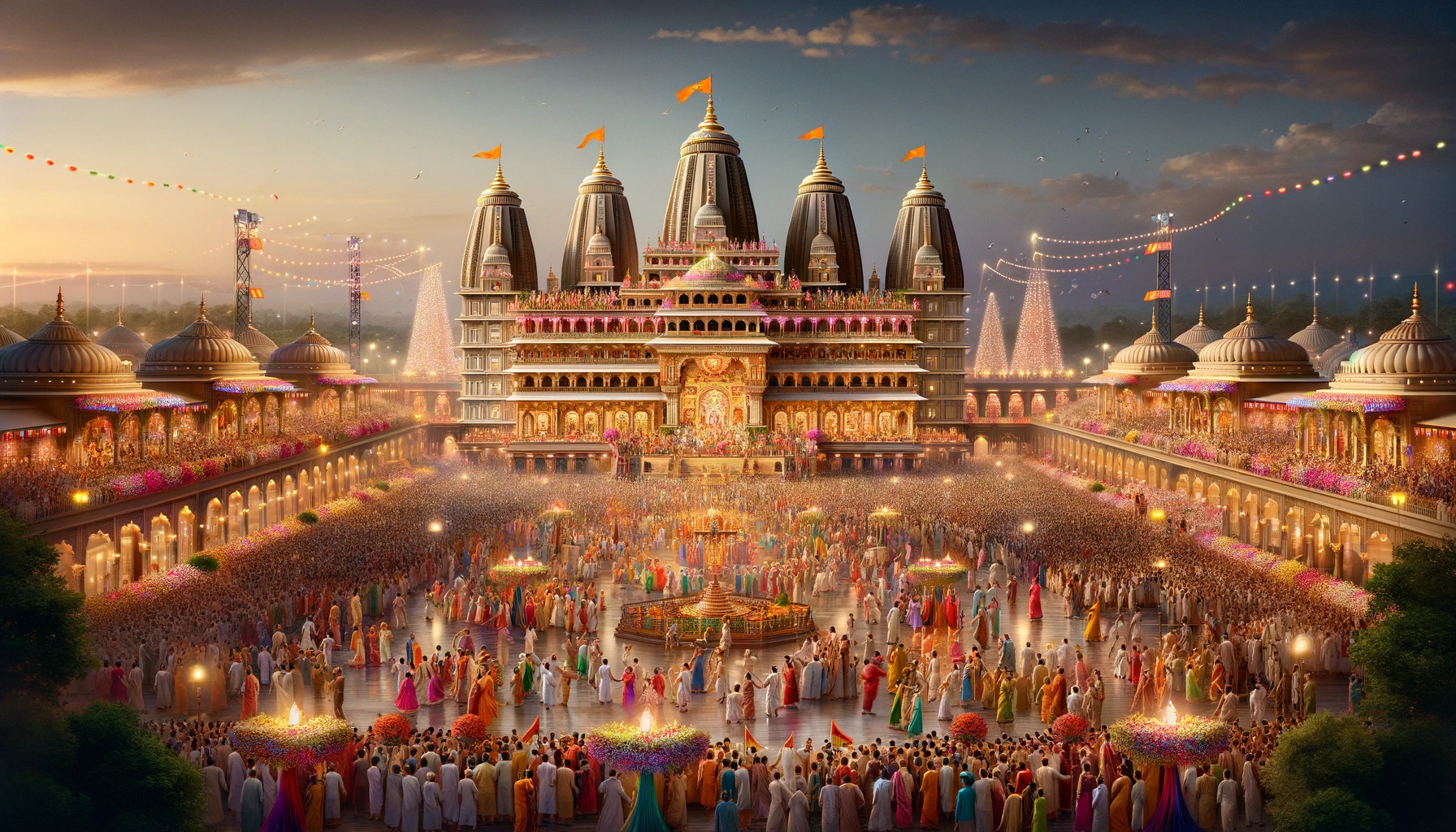Introduction:
Namaste, dear readers. I am Swami Mukundananda, and it is with great joy that I share my thoughts on a topic that has captured the hearts of the Indian community worldwide - the upcoming Pran Pratishtha of Ram Lala in Ayodhya and the Ram Mandir. Recently, I had a delightful conversation with Pras Sadri from California, where we delved into the diverse views of saints on this auspicious event and explored the deeper significance of rituals in the path of Bhakti.
Diverse Perspectives on Ram Mandir
Embracing Differences in Opinion:
In our discourse, the matter of differing opinions among saints regarding the Ram Mandir was raised. It's important to understand that differences in opinion, even concerning the truth or scriptural interpretations, have always existed. History reminds us of debates like the one between Adi Shankaracharya and Mandan Mishra - a healthy exchange of differing viewpoints. Similarly, we should perceive the varying opinions of saints on the Ram Mandir as part of a healthy discussion, a manifestation of their understanding of a particular event.
RAM MANDIR Inauguration Against Scriptures?
The Shankaracharya Controversy:
A specific objection was raised by some Swami Shankaracharyas regarding the Pran Pratishtha of the Ram Mandir. Their concern was about performing the ceremony before the temple's complete construction. However, scriptural precedent does not mandate the completion of a Mandir before Pran Pratishtha. The life of Adi Shankaracharya offers a relevant example. When he visited Badrinath, he found the temple empty and, upon retrieving the submerged deity from the Alaknanda river, he established it in the temple, which was then in a dilapidated state. The temple's renovation happened much later, illustrating that the deity's establishment can precede the temple's completion.
The Role of Rituals in Bhakti
Significance and Limitations of Rituals:
Rituals play a dual role in our spiritual journey - they are both significant and insignificant. Scriptures like Narad Pancharatra and others detail various rituals and their execution. These rituals are meant to assist in our loving devotion to God. However, the Bhakti movement, led by over a hundred saints across India, emphasized that while rituals are necessary, they are not the ultimate goal. The essence of rituals lies in their ability to help us remember Bhagwan, as beautifully stated by Vyasadeva: "All rules and regulations in the scriptures are framed with two goals - always remember Bhagwan and never forget Him."
Devotion Over Rituals:
Saint Kabir poignantly remarked that if mere ritualistic practices could lead to God, he would wear a mala around his neck. It's crucial to understand the essence and purpose of rituals. If a ritual, or our understanding of it, hinders our devotion, the scriptures and historical saints endorse prioritizing devotion, even at the expense of certain ritualistic norms.
Closing Thoughts:
It was a pleasure to discuss these enlightening topics with Pras Sadri. I hope our conversation has clarified the questions many have about the Ram Mandir and the role and significance of rituals in Bhakti. In our journey towards God, let us remember that it is not our wealth, intelligence, or rituals that matter to the Divine. It is our love and devotion that truly counts.
Namaste, and may your path be illuminated with the light of devotion and understanding.
FAQs:
Q: Why are there different opinions among saints regarding the Ram Mandir Pran Pratishtha?
A: Differences in opinion among saints reflect the diversity of their understanding and interpretations of scriptures and events. Such variations are natural and have been a part of spiritual discourse throughout history.
Q: Is it necessary for a temple to be fully constructed before performing Pran Pratishtha?
A: No, it's not a scriptural requirement for a temple to be completely built before conducting Pran Pratishtha. Historical instances, like Adi Shankaracharya's establishment of the deity in Badrinath, support this.
Q: What is the ultimate goal of performing rituals in Bhakti?
A: The ultimate goal of rituals in Bhakti is to aid in our loving devotion to God. They should serve as means to remember and never forget Bhagwan, rather than being seen as the end goal themselves.
Relevant Sanskrit Quote:
"स्मर्तव्यः सततं विष्णुर् विस्मर्तव्यो न जातुचित्।"
"Always remember Vishnu, and never forget Him." -


